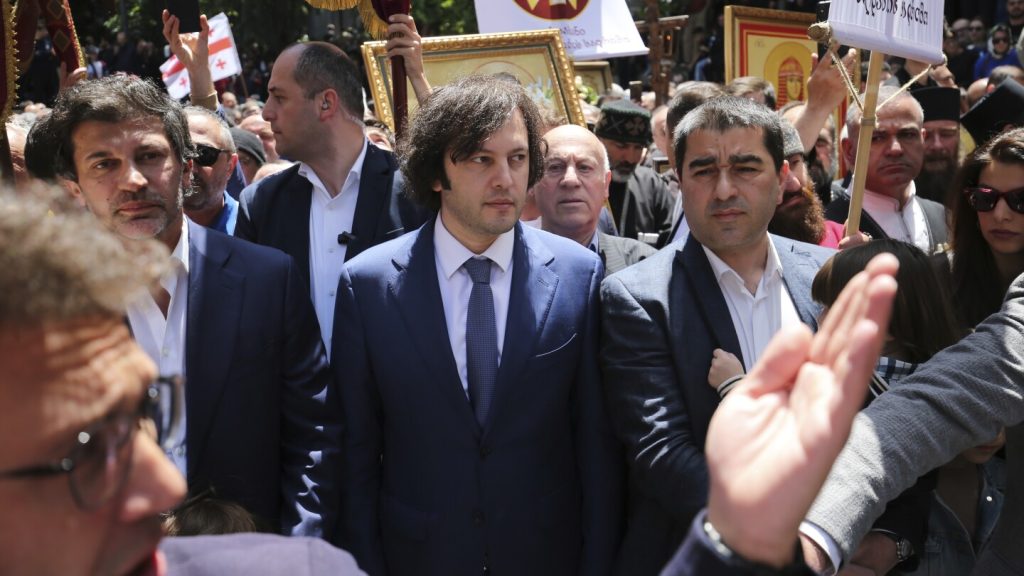The Day of Family Purity, a celebration of traditional family values initiated by the Georgian Orthodox Church in 2013, was marked in Georgia on Friday with a march through the capital, Tbilisi. Prime Minister Irakli Kobakhidze and parliamentary Speaker Shalva Papuashvili were among the tens of thousands of participants who carried icons and Christian emblems and wore traditional costumes. The event drew criticism from liberal groups for coinciding with the International Day Against Homophobia, Transphobia and Biphobia. However, march participant Rusudan Tabatadze stressed the importance of defending the country’s faith, identity, and language.
In recent months, Georgia’s ruling Georgian Dream Party has introduced a bill aimed at curtailing LGBTQ+ rights, including prohibiting sex changes, adoption by same-sex couples, and gatherings promoting same-sex relations. The controversial bill has sparked backlash from activists and the international community, with concerns that it could hinder Georgia’s progress towards joining the European Union. Additionally, Georgian Dream has proposed legislation requiring news media and nongovernmental organizations to register as “agents of foreign influence” if they receive more than 20% of their funding from abroad, leading to mass protests in Tbilisi.
The tension surrounding LGBTQ+ rights in Georgia was further highlighted by an incident last year when opponents of gay rights disrupted an LGBTQ+ festival in Tbilisi, resulting in the event’s cancellation. Critics of the Georgian government’s stance on sexual minorities view these actions as reflective of a broader crackdown on civil liberties and human rights, likening the restrictions to those enforced in Russia. President Salome Zourabichvili has pledged to veto the bill targeting media and NGOs, but with Georgian Dream’s majority in parliament, the measure is likely to be approved despite opposition.
Despite the growing divide between conservative and liberal factions in Georgian society, the Day of Family Purity march served as a unifying event for those who share traditional values and a commitment to preserving the country’s cultural heritage. Participants emphasized the importance of faith in Georgian identity and history, citing the resilience and sacrifices made by previous generations to uphold these values. As Georgia navigates complex political and social challenges, the clash between traditional beliefs and LGBTQ+ rights continues to be a contentious issue that reflects broader debates about democracy, human rights, and cultural diversity in the country.
As Georgia grapples with the implications of legislation that could impact LGBTQ+ rights and media freedom, the government’s actions have drawn scrutiny from both domestic and international observers. The juxtaposition of the Day of Family Purity and the International Day Against Homophobia, Transphobia and Biphobia underscored the competing narratives within Georgian society, highlighting the need for dialogue and understanding between different groups. Moving forward, Georgia faces complex choices about the balance between traditional values and modern principles, with implications for its relationship with the European Union and its commitment to upholding human rights for all citizens.


